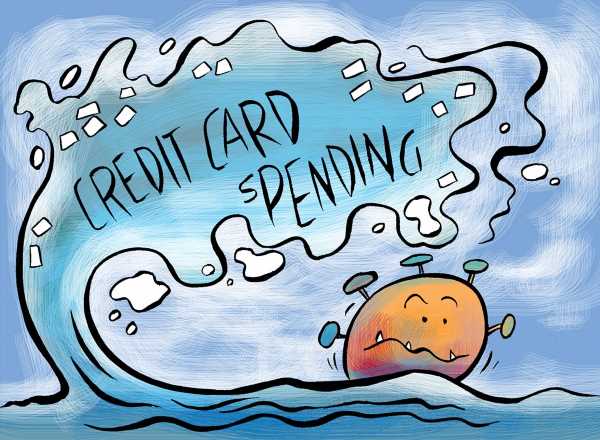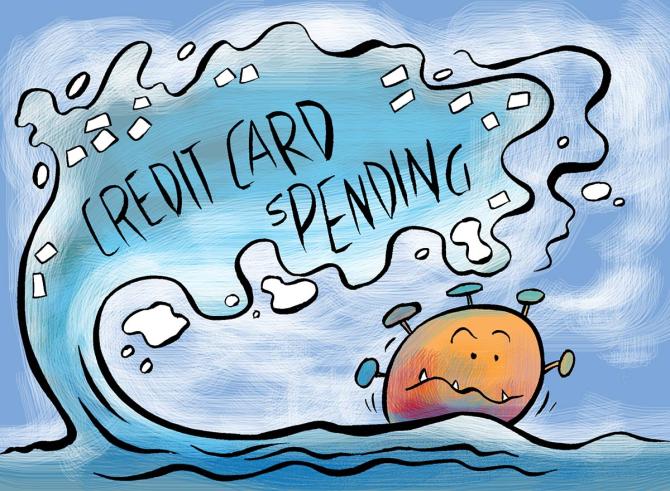How to make the most of RBI’s new customer-friendly credit card rules
Some smart tweaking of the billing cycle will give you more time to settle without having to pay any interest.
Bindisha Sarang reports.
The Reserve Bank of India (RBI) announced new rules for credit cards, applicable from July 1.
“These directions cover the general and conduct regulations relating to credit, debit and co-branded cards which shall be read along with prudential, payment and technology & cyber security related directions applicable to credit, debit and co-branded cards, as issued by the Reserve Bank,” the circular by RBI said.
Business Standard culled out key rules from the list, and asked financial experts for advice on them, along with the thumb rules one needs to follow while using credit cards.
Rule: Issuers do not follow a standard billing cycle for all credit cards sold.
To provide flexibility in this area, cardholders shall be provided a one-time option to modify the billing cycle of the credit card as per their convenience.
There is no ideal date. But do consider a few things.
Adhil Shetty, chief executive officer (CEO), BankBazaar, says, “The first is the difference between the time your salary is credited and the due date of the bill.
“The gap of a week between your salary cycle and your billing cycle is best as this gives you enough time to clear the bills before the due date.
“If the bill date is closer to the end of the salary cycle, then it can get stressful. So, a more convenient cycle can be chosen.”
The second is to schedule different credit card bills so that you can pay them off without much stress.
Raj Khosla, founder & managing director at MyMoneyMantra, says, “If you have two cards, have one billing cycle around 15th of the month and the other around 1st.
“That way you will get some leg room to adjust using free credit or payments.”
This will make managing expenses easier, and you will not over-burden one card too much.
If you need to use a card on the 10th, do not use the one that offers you a bill in another 5-10 days.
Use the one where the bill will be due a month later.
If you pay in full on all cards, you can use multiple cards, get free benefits, and never pay interest.
M Barve, founder, MB Wealth Financial Solutions says, “To avoid paying interest and late fees, you’ll need to pay your total bill by the due date.
“To improve your credit score, the best time to make a payment is usually before your statement closing date or whenever your debt-to-credit ratio begins to climb too high.”
Rule: As holding several credit cards enhances the total credit available to any consumer, issuers will assess the credit limit for a card customer taking into consideration all the limits enjoyed by him from other entities based on self-declaration/credit report.
consumer protection, responsible lending, and risk management for lenders.”
Taking an aggregate view of a customers’ available credit at the time of assessment can help the customers build a healthy credit profile while ensuring adequate liquidity.
Customers should assess their lifestyle and select a card most suited for it.
Chopra says, “Start off by choosing a card that provides the most benefit for the biggest spend category, and gradually build a healthy credit portfolio.
“Too many new credit products in a short period of time can have an adverse effect on the credit score.”
So how many credit cards should one have considering that there are so many other options like BNPL, Line of credit, personal loans (instant) available these days?
Chopra says, “Each of the products have a context and utility for the customer, but it’s important for customers to have a greater understanding of their credit profile, and how credit can play a role in helping them achieve their financial goals.”
The right mix of credit products is a function of an individual’s financial goals and lifestyle aspirations, and these are unique to everyone. Barve says, “Two credit cards with healthy credit lines is a sweet spot that one can always have.”
Rule: Add-on cards shall be issued only to persons specifically identified by the principal cardholder under personal credit card categories.
Add-on cards shall be issued with the clear understanding that the liability will be that of the principal cardholder.
An add-on credit card essentially contains the same features of the primary credit card and can be availed by the immediate family members of the primary cardholder.
Vishal Dhawan, board member, Association of Registered Investment Advisors (ARIA), says, “It is important that people educate spouses and family members about how credit cards work, and how they could induce overspending on discretionary items.”
Make use of setting spending limits for add-on credit cards to ensure responsible spending.
Dhawan says, “It would be ideal to illustrate to the add-on card holders with numbers how rolling over credit card debt can lead one to a debt trap very quickly.”
Rule: Issuers shall ensure complete transparency in the conversion of credit card transactions to equated monthly instalments (EMIs) by clearly indicating the principal, interest and upfront discount provided by the merchant/card-issuer (to make it no cost), prior to the conversion.
The same shall also be separately indicated in the credit card bill/statement. EMI conversion with interest component shall not be camouflaged as zero-interest/no-cost EMI.
Sachin Vasudeva, associate director & head of credit cards, Paisabazaar.com, says, “It would definitely bring in more transparency and increased consumer awareness on the total transaction cost when they convert a purchase into EMI.
“Since the consumer stays informed about all associated costs, chances of mis-selling are reduced.”
No-cost EMIs are helpful for consumers who cannot afford upfront payment for goods, as they do not have to pay any interest.
However, costs like processing fee (if any) and Goods and Service Tax (GST) are applicable even here.
Moreover, like any other form of credit, consumers are required to pay back the EMIs in full, on time. Failure to do so can lead to higher finance charges and also adversely affect their credit score.
Vasudeva says, “Some providers may offer the ‘no-cost EMI’ facility only for shorter tenures, thus making the installments bigger.
“Hence, it is advised to opt for this facility only when you are confident about your ability to repay the EMIs on time.”
While the new RBI guidelines are a step in the right direction, the onus of managing the card responsibly still lies with the cardholder.
One must always pay credit card dues in full on or before the due date, and not just the minimum due amount, so that no additional charges are applicable.
When there is a pending balance on the credit card, finance charges are applicable not only on the balance but also on new purchases for as long as the amount stays outstanding in the card account.
Cash withdrawal from credit cards also incurs finance charges from the first day and also makes new purchases ineligible for the interest-free period.
Never withdraw cash using your credit card–it’s an expensive deal.
To maximise benefits from your credit card, should check your statements on a regular basis.Keep track of your reward points and make the most of your card features.
Source: Read Full Article


